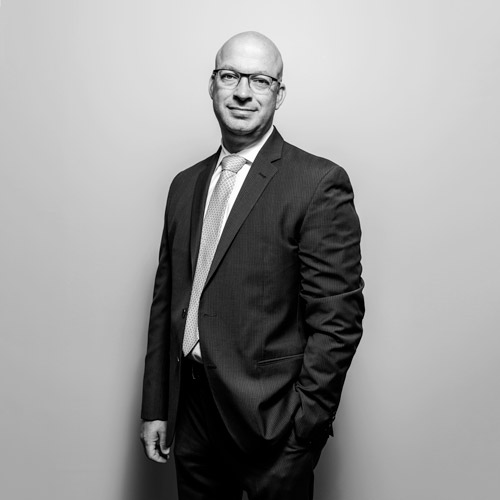Can sound moral decisions also be lucrative financial opportunities? One place to find out is Christian Brothers Investment Services. The firm works exclusively with Catholic organizations, from Archdioceses and schools to charities and foundations, using the Catholic Responsible Investing (CRI) model. CRI helps these organizations find investments with solid returns while also ensuring that investments do not conflict with the ethical and social teachings of the church.
It may seem that an investment firm that excludes some companies from consideration, for any reason, would suffer from such constraints, but John Geissinger, chief investment officer for CBIS, says that is not necessarily the case. “The basic perception is that if you constrain something in a portfolio, it is always at a cost,” Geissinger says. “If you’d asked me ten to fifteen years ago, I would have agreed. Relative to an unconstrained portfolio, there is definitely short-term volatility. But markets are efficient over the long-term. When you look at our S&P index fund, the average deviation over the last ten years is less than ten basis points. I would say eight to ten basis points is just noise.”
Geissinger’s experience in investment management spans more than twenty years, concentrating in fixed income portfolios, along with work in endowments. He realized midway through his career that he enjoyed the high-level strategy aspect of investing as opposed to individual buying and selling of securities.
After holding investment positions at Bear Stearns and the North Dakota Retirement and Investment Office, Geissinger took a job as a senior research consultant at Hewitt EnnisKnupp, which transferred him back to the East Coast (his wife wasn’t fond of North Dakota). That’s when a re-cruiter called him with the opportunity at CBIS.
Not a Catholic himself, Geissinger was nonetheless attracted to the challenge of balancing moral and financial considerations. He says that looking back at some of his other positions, the goal was purely to maximize return, with no guidelines on what practices the company was following.
“What was appealing to me was the ability to construct an investment program that can generate long-term performance and be consistent with the belief system of any particular group. Our firm just happens to be focused on Catholic investment,” he explains. “I think the best-run companies are at least implicitly—if not explicitly—focusing on a sound moral guidestone.”
In developing portfolios for clients, the first layer of the process is weeding out companies who engage in practices objectionable to the Catholic belief system. Once investments have been made, they positively engage with companies to encourage them to develop in the areas of human dignity, economic justice, and environmental stewardship. CBIS will conduct discussions with a company’s leadership about their policies, review everything happening in the supply chain, and actively vote as shareholders.
Mammoth retailer Target is one of the companies CBIS has been working with to help manage the supply chain in a way that is consistent with CRI. As one of the largest importers of frozen shrimp to the United States, the company is entangled with the fishing industry in Indonesia, where there are unscrupulous labor brokers and incidents of human trafficking. CBIS has begun moving down Target’s supply chain to find ways to root out the objectionable practices. The company has also been positively engaging Wyndham Hotels on reducing human trafficking around major sporting events.
Geissinger notes that the mission of CBIS parallels the larger socially responsible investor movement, which recognizes that there are real consequences to business practices, and that it is not just blind capitalism. For example, a chemical plant that sits upriver and is dumping waste downstream can have a direct impact on many people.
“There are economic externalities as part of any capitalist society that are difficult to tax or restrict,” Geissinger says. “I’ve become a convert of cap and trade as the most efficient way to manage those things. A tax is not going to help you limit the externalities; it just reduces supply and increases the cost. The cap truly caps and provides great economic incentives. If corporations can be more efficient and produce less they can sell off their excess capacity. It’s simple economics at its best.”
Once CBIS gains shares of a company, it begins scouring the supply chain to make sure nothing is happening that conflicts with their clients’ ideals. These funds have remained healthy and delivered returns. “As owners of the company, we want you to generate profits, but not negative externalities. That’s important to us,” Geissinger says. “So as stewards of our capital, we want you to take this into consideration. That’s really the movement that CBIS has been on the forefront of, and now other investors are starting to catch up with us.”

